Watchlist September 2023
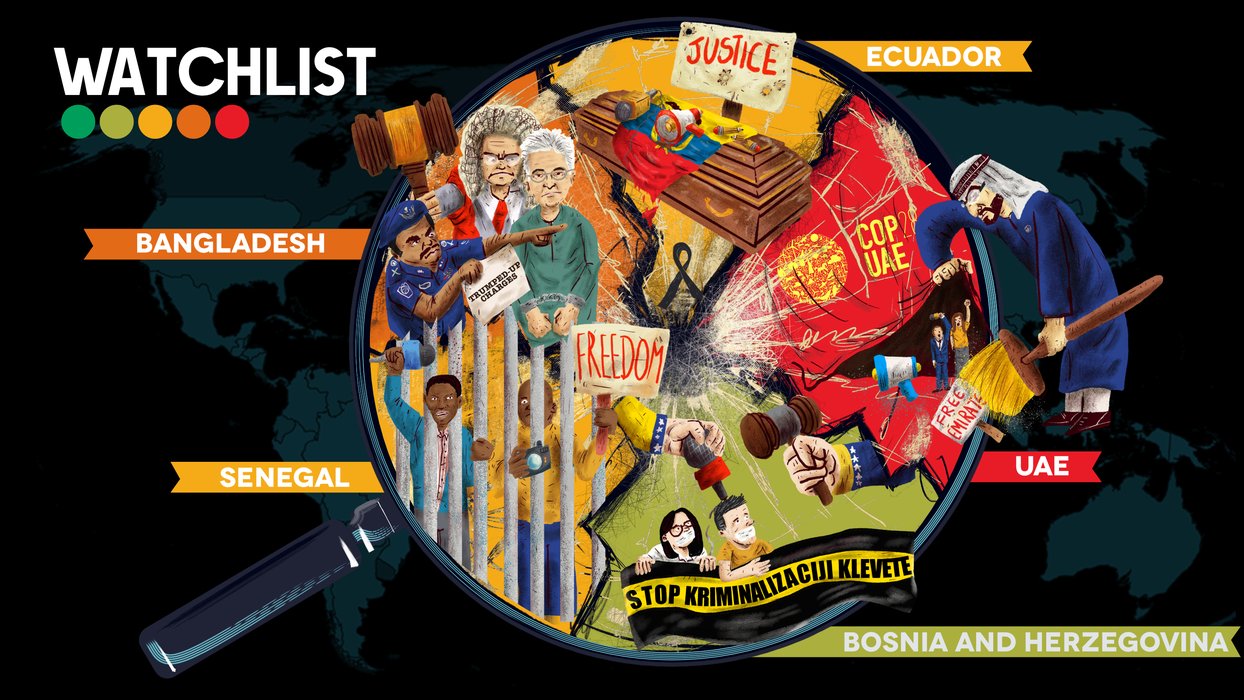
September Watchlist 2023
Latest Update: 21 September 2023 -The new CIVICUS Monitor Watchlist highlights serious concerns regarding the exercise of civic freedoms in Bangladesh, Bosnia and Herzegovina, Ecuador, Senegal and the United Arab Emirates.
The Watchlist draws attention to countries where there is a serious and rapid decline in respect for civic space, based on an assessment by CIVICUS Monitor research findings, our research partners and consultations with activists on the ground.
In the coming weeks and months, the CIVICUS Monitor will closely track developments in each of these countries as part of efforts to ensure greater pressure is brought to bear on governments. CIVICUS calls upon these governments to do everything in their power to immediately end the ongoing crackdowns and ensure that perpetrators are held to account.
Descriptions of the civic space violations happening in each country are provided below. If you have information to share on civic space in any of these countries, please write to monitor@civicus.org.


Ahead of Senegal’s contested presidential elections, set to take place in February 2024, authorities have increased their repression of opposition and dissenting voices, including journalists and activists, while civic space violations have multiplied.
In a context of heightened political tension, protests and unrest erupted over the judicial prosecution of popular opposition leader Ousmane Sonke, perceived by the opposition as politically motivated. Additionally, Sonko was arrested at the end of July 2023, charged with fomenting an insurrection in relation to the deadly June 2023 protests, while his political party PASTEF (Parti Patriotes Africaines du Sénégal pour le Travail, l’Ethique et la Fraternité) was dissolved by authorities.
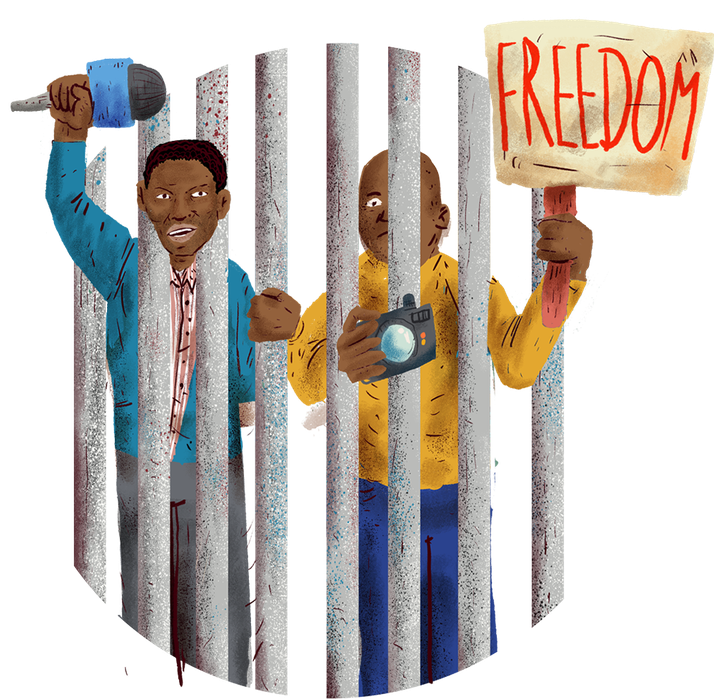
Until 4th July 2023, incumbent president Macky Sall refused to say whether he would run for a third term, beyond the two-term presidential limit in Senegal’s Constitution. While President Sall finally decided not to run for a third term, the judicial prosecution of popular opposition leader and mayor of Zinguinchor, Ousmane Sonko, perceived by the opposition as politically motivated, has sparked protests and unrest, which authorities and security forces severely repressed. Sonko was arrested at the end of July 2023 on charges of fomenting an insurrection and undermining state security, among other charges, in relation to the deadly June 2023 and March 2021 protests, while his political party PASTEF (Parti Patriotes Africaines du Sénégal pour le Travail, l’Ethique et la Fraternité) was dissolved by authorities.
In the past months, civic space violations have intensified, including the use of excessive and lethal force in the face of opposition protests, protest killings, arbitrary arrests of journalists, restrictions of access to internet and social media, including the suspension of TikTok, and the suspension of media outlets and the opposition party PASTEF.

Ahead of national elections - scheduled for January 2024 - there has been an escalating crackdown on the opposition, activists and dissenting voices in Bangladesh.
Since the beginning of 2023, the authorities have ramped up their targeting of the opposition Bangladesh Nationalist Party (BNP). Thousands of fabricated cases have been filed against its supporters. Law enforcement officers have used these open cases as warrants to raid the homes of political opposition members in what appears to be overt political harassment and intimidation. Further, protests by the opposition have been met with restrictions and excessive force, including tear gas and live ammunition.
The government has also escalated its harassment of human rights defenders. The authorities accelerated hearings against activists Adilur Rahman Khan and ASM Nasiruddin Elan of human rights group Odhikar and sentenced them to two years jail. They had faced ten years of judicial harassment for a 2013 report on extrajudicial killings and a smear campaign for their work.
The authorities have also increasingly attempted to silence the media through censorship and the arbitrary detention and legal harassment of journalists. Critical media outlets have been shut down, vilified and attacked and journalists and their families in exile have been targeted. There has also been impunity in cases of killings and abductions of journalists.
The draconian Digital Security Act (DSA) – a law that contains overbroad and vague provisions granting the authorities extensive powers to police the online space – often used against online critics and journalists, is being replaced by a new Cyber Security Act which retains most of the DSA’s repressive offences.
The government continues to use enforced disappearances as a tool to suppress political movements and silence dissenting voices, creating a climate of fear in the country.
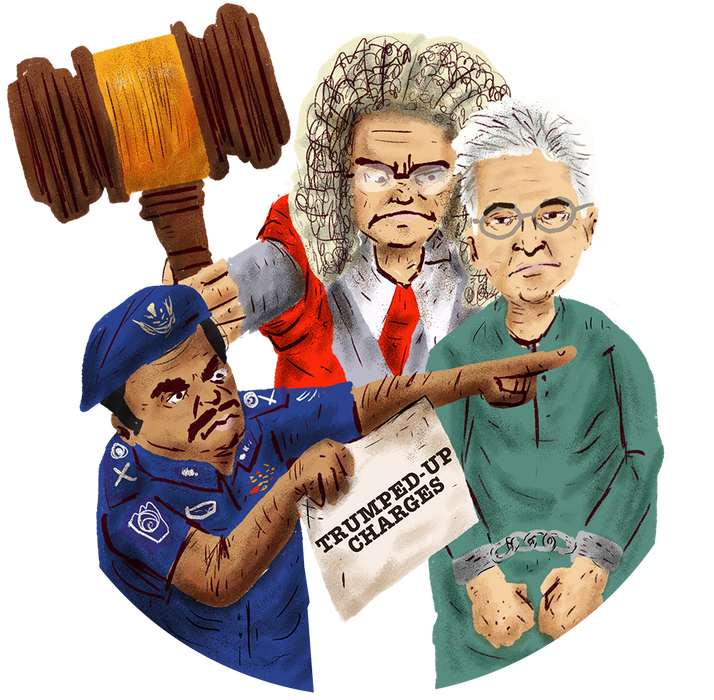

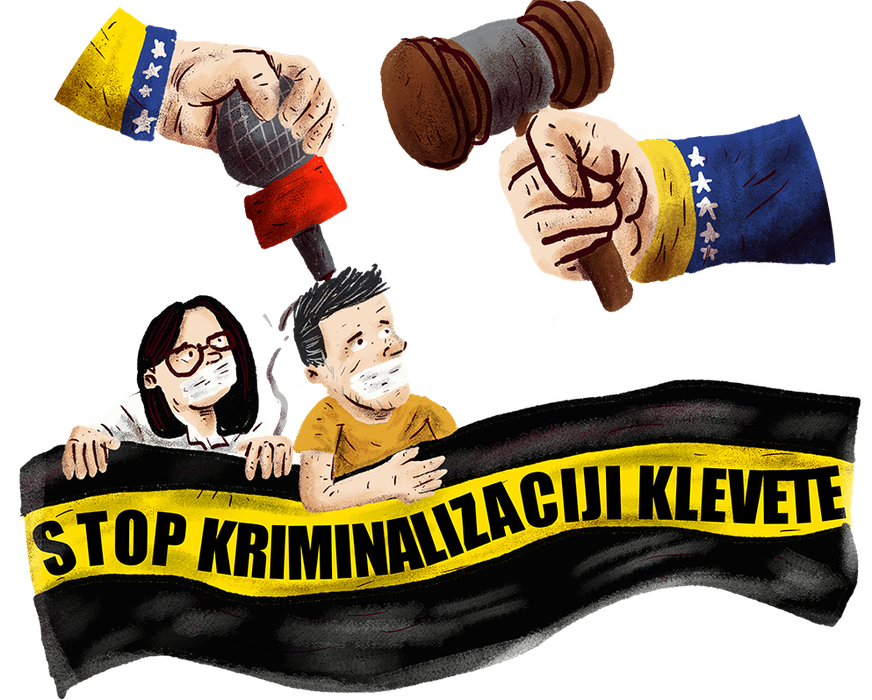
An ongoing political crisis in Bosnia and Herzegovina, caused by secessionist threats from one of the country’s two constituent entities, Republika Srpska (RS), has led to increased pressure on civil society and media in its territory, threatening civic space in the country as a whole. The crisis peaked in June 2023, when the RS parliament passed a lawrejecting the authority of the state-wide Constitutional Court.
The president of Republika Srpska, Milorad Dodik, described the move as “cleansing Bosnia and Herzegovina of foreign influence”, and has gone on to champion a series of bills aimed at silencing dissent. These include a draft law on “foreign agents'' prohibiting foreign-funded CSOs and not-for-profit media from engaging in “political activities” under penalty of closure or criminal prosecution, and “draconian” amendments re-introducing criminal defamation into the legal system, which have elicited sharp criticism from civil society and journalists’ associations, as well asinternational organisations. Meanwhile, institutions in RS have failed to protect LGBTQI+ activists from increased violence.
Alongside the events in Republika Srpska, civil society has warned of concerning developments at the national level, with the central government of Bosnia and Herzegovina adopting restrictive amendments to the Access to Information Law in April 2023. Violence and threats against journalists are common across the country, and environmental activists face pressure from private companies.

The sustained onslaught on civic space, through targeting human rights activists, enacting repressive laws, and using the criminal justice system as a tool to systematically retaliate against those who advocate for human rights continues to be a serious cause for concern.
As the country prepares to host the 28th United Nations Global Climate Talks (COP28) from 30th November to 12th December 2023, the CIVICUS Monitor, the Gulf Centre for Human Rights and other civil society groups continue to document unrelenting civic space restrictions and highlight the repression still happening in the country. CSOs have raised concern that at least 58 prisoners of conscience remain in prison despite completing their sentences. The practice of torture in prisons and detention centres including against HRDs remains widespread in the UAE and HRDs and peaceful critics continue to be systematically targeted by authorities in retaliation for their peaceful human rights work, while the recently adopted Cybercrime law of 2022 criminalises the work of journalists, whistleblowers, activists and peaceful critics in a bid to silence dissent.
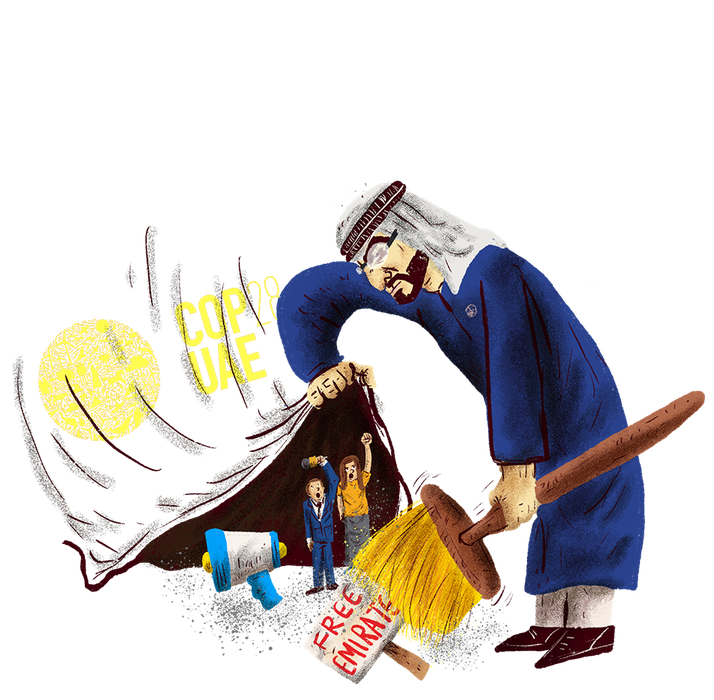
CSOs have also raised concern about the ability of civil society to meaningfully participate in or critique this important meeting in the backdrop of an increasingly retaliatory and punitive context, and the ability of CSOs to effectively advocate for climate justice in the host country given its poor human rights record.


Ecuador is currently immersed in a concerning crisis due to the ongoing political violence that deepened due to the assassination of journalist and presidential candidate Fernando Villavicencio at the end of an electoral campaign rally in Quito. The security situation has led to increased attacks against journalists, and political figures are at risk of violent attacks, marking a deterioration of the civic space situation in the country.
There is an increasingly hostile environment when it comes to exercising freedom of expression, with documented attacks and violence, including digital harassment. In 2022, three journalists were murdered, and in 2023 there were additional cases of death threats by organised crime groups. In the initial round of the presidential elections in August 2023, there were 29 documented attacks mainly targeting journalists, political candidates and media outlets.
As a consequence of the increased violence in 2023, at least five reporters have fled Ecuador in the past months, and a total of 175 aggressions have been documented up to August 2023. The year 2022 marked a grim milestone in the country, with 356 attacks - the highest level since 2018.
In anticipation of the October 2023 national elections, civil society organisations are concerned about the levels of violence linked to organised crime. They have criticised the government for its lack of effort in providing necessary mechanisms to protect people actively exercising their freedom of expression.

